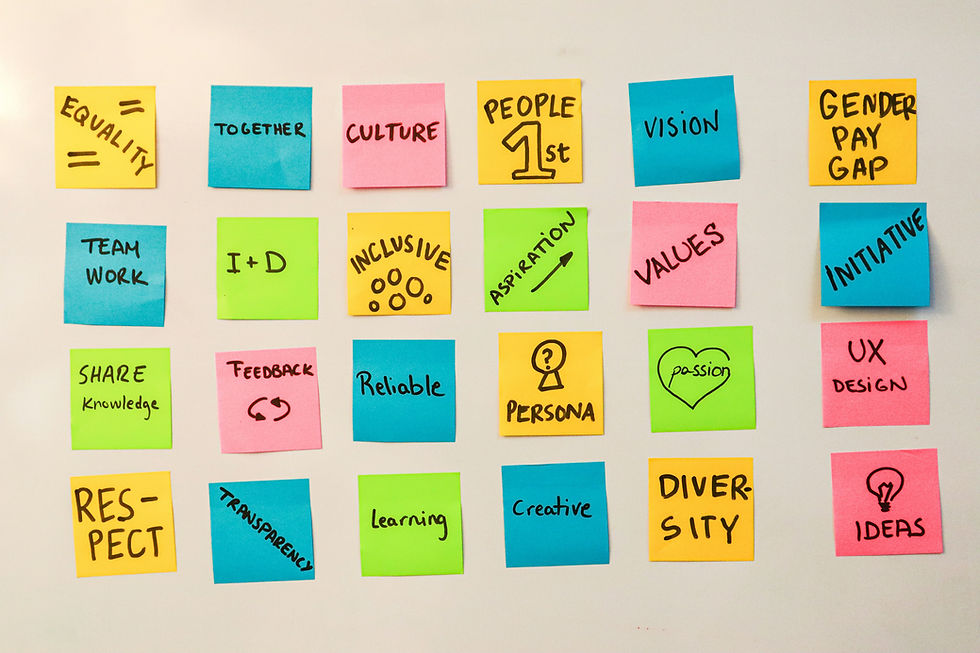What is NLP?
- helenjbutler
- Mar 21, 2022
- 2 min read
Updated: Mar 22, 2022

Photo by MK Hamilton on Unsplash
I used to be really suspicious of NLP (Neuro Linguistic Programming). I did a half day’s course - years ago - about how to use it in marketing, to essentially manipulate people into buying stuff. That taught me that at best it’s an effective tool for manipulation, and at worst it’s a pseudo-science. Not brilliant, really. But after years of coaching training and hearing from others how amazing – and effective - it can be, I decided to dig a bit deeper.
I began an intensive course last October, and passed the assessment weekend in February to become a ‘certified’ NLP Practitioner. Maybe they’ve brainwashed me too, but what I learnt was genuinely enlightening…
I think what I was being taught (badly) all those years ago were two different parts of NLP. The first is how to use ‘artfully vague’ language and suggestion to appeal to large groups of people or those we don’t know very well. It turns out these language patterns can be attributed to the ‘Milton Model’ and it’s got nothing to do with manipulation.
I use this principle in my work when learning about people – the language patterns bypass their conscious mind, and access their unconscious thoughts and motivations, as they simply read into it whatever meaning is relevant and useful for them at that time.
My husband jokes that I’m trying to ‘nulp’ him unawares, but it really doesn’t work like that.
NLP is simply a collection of strategies and techniques you can use to help navigate blocks in the road like lack of motivation, conflict, self-sabotage and anxiety. It works by helping you to change your thoughts, language and behaviour, which in turn impacts on your results.
You can’t really ‘do it’ on someone without their knowledge or permission. And if you did try, it’s very much frowned upon ;)
It’s taken me a while to overcome my deep scepticism and mistrust of NLP, and I now know that it’s to do with my Convincer strategy, which requires me to see something working a number of times, over a certain timeframe before I trust it, or am convinced by it.
Your convincer strategy is one type of metaprogram (or frame through which we make sense of the world), and it’s also the second part of the badly taught marketing course I did.
We’ve all got loads of metaprograms, which help to explain our attitudes and approach to all sorts of things like change, what motivates us, and whether we require mainly internal or external validation to feel we’ve done a great job. When you understand these frames that you see the world through, it helps you to design strategies to achieve your goals that fit you as an individual.
There are so many useful learnings and techniques from my NLP training, that can be put into practise immediately. I’ll be sharing some of these in my next few posts.
If you have any questions about NLP or would like to chat about how these techniques could help you move forward in 2022, please do get in touch.




Comments